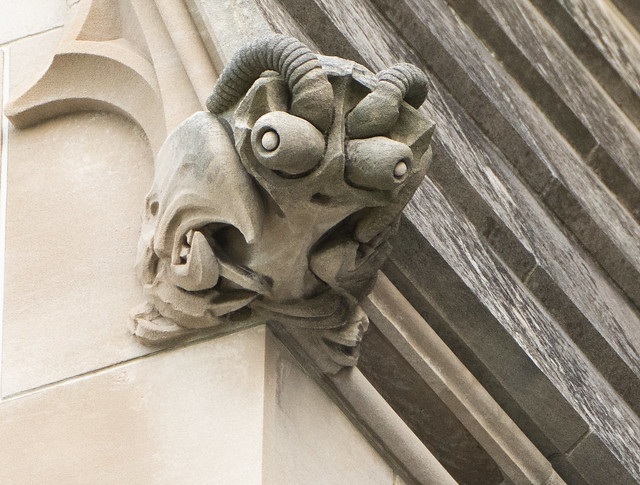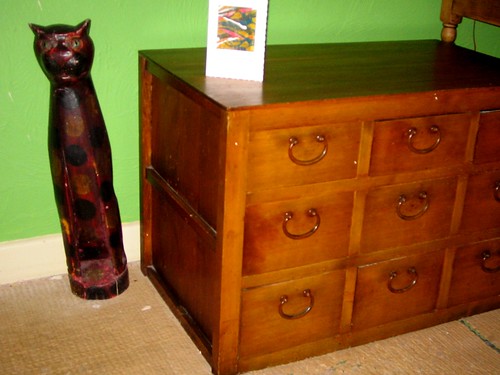In this post we find out what links the word grotesque with caves and hiding.
Grotesque [ɡɹəʊˈtɛsk / ɡɹoʊˈtɛsk] as an adjective means:
- Distorted and unnatural in shape or size; abnormal, especially in a hideous way
- Disgusting or otherwise viscerally revolting
- Sans serif (in typography)
As an noun it means:
- A style of ornamentation characterized by fanciful combinations of intertwined forms
- Anything grotesque
- A sans serif typeface
It comes from Middle French grotesque (farcical, ridiculous; small cave, ornament), from Italian grottesco (grotesque) from grotta (cave, grotto) and -esco (relational suffix) [source]. Grotta comes from Vulgar Latin *grupta/*crupta, from Latin crypta (underground passage, tunnel, crypt, vault), from Ancient Greek κρυπτή (kruptḗ – crypt, vault) from κρύπτω (krúptō -hide), the origins of which are unknown [source].
Words from the same roots include grotto and crypt in English, grot (cave, cavern) in Dutch, and grotte (cave) in French [source].
The words grotty and gro(a)dy and clippings of grotesque: grotty is used in the UK, Canada, Australia and New Zealand and means unpleasant, dirty, slovenly, offensive [source], shoddy, rundown, disgusting, gross, bad [source], while gro(a)dy is used in the USA and means nasty, dirty, disgusting, foul, revolting, yucky or grotesque [source].
Grody is shortened even further into gro (disgusting, unpleasant; gross), although that might come from gross [source].










